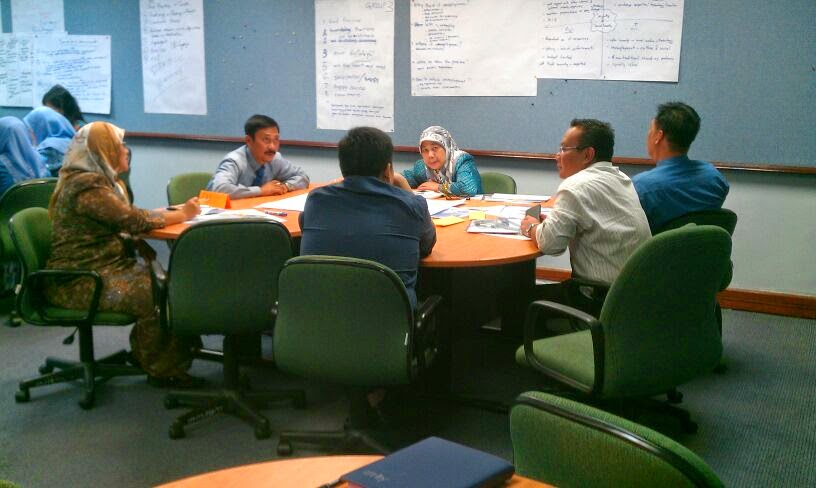In a small room in Belait, voices rose not in anger, but in quiet exhaustion.
The digital age promised connection — but for the poor, it’s becoming another kind of silence.
A recent informal dialogue session revealed what many have long suspected — Brunei’s digital welfare system, designed to improve efficiency, is unintentionally leaving some of its most vulnerable citizens behind.
From elders who have never touched a smartphone to families who wait months for a response they can’t check online — this is a story of progress without inclusion.
As His Majesty reminded, inefficiency in serving the poor is not just administrative — it is moral.
When compassion loses to convenience, it’s time to ask: who are we really digitising for?
🟤 KopiTalk with MHO — Real Stories for a Better Nation
#Brunei #KopiTalkWithMHO #Wawasan2035 #DigitalInclusion #SocialJustice #Zakat #Welfare #EmpathyInGovernance #NegaraZikirBy Malai Hassan Othman
“If the poor cannot reach the system, then the system must reach them.”
Belait, 18 October 2025: A small private room at a local restaurant in Belait recently became the meeting place for voices rarely heard - the poor, the sick, and the elderly, all gathered for an informal dialogue session to share their experiences in accessing the national welfare system.
The session, facilitated by the Biro Tindakan Aduan Rakyat (BITAR), provided several families categorised as asnaf fakir miskin the opportunity to express their frustrations and struggles in applying for assistance through the Skim Kebajikan Negara (SKN).
Many participants admitted they did not understand how to apply online. Some had never owned a smartphone or computer, while others were completely unfamiliar with the internet.
What was designed to simplify welfare delivery has, for many, become an invisible wall. “We don’t know how to fill out the online forms,” said one elderly woman.
Another participant mentioned that she applied months ago but never received a response.
Others described being unable to complete applications due to missing documents or unstable internet connections.
“Sometimes I just wait and pray that someone will come and ask if we have enough to eat,” said one mother quietly, her voice trembling between hope and fatigue.
BITAR volunteers listened attentively and took the opportunity to explain the application process - how the system works, what documents are required, and where help could be sought - so that participants could better understand what to prepare before making their applications.
They also acknowledged the challenges faced by participants, including poor connectivity, lack of access to devices, and low digital literacy. For those who were ill or unable to work, BITAR offered to help obtain medical certification to strengthen their future applications.
To ease the immediate burden, food supplies - rice, oil, and other necessities - were distributed to provide short-term relief and comfort.
BITAR later noted that the digital application system under SKN remains unfriendly to the poor, the elderly, and rural residents.
Technology, they said, should be a bridge - not a barrier. The group suggested that authorities consider hybrid assistance models that combine online efficiency with physical support, such as mobile counters, local help desks, and trained facilitators at the grassroots level.
The message was clear: no one should be left behind due to a lack of digital literacy or access.
These concerns are not isolated. They echo a sentiment repeatedly heard within the halls of the Legislative Council during the August 2025 sessions, where several members voiced similar worries about Brunei’s growing digital divide.
The Minister of Religious Affairs, Pehin Badaruddin, acknowledged that while the digitalisation of the zakat and SKN systems was intended to improve transparency, many applicants still find the process complicated, particularly the elderly and those without digital access.
He also conceded that manual verifications and administrative overlaps continue to slow down the approval of assistance.
Members representing rural districts, including Belait and Temburong, pointed out that villagers without internet access often struggle alone and proposed hybrid approaches — a mix of digital convenience and on-the-ground human assistance — to ensure inclusivity.
Several even called for village heads and penghulus to be trained as community facilitators for online applications.
The Minister of Transport and Infocommunications, Pengiran Shamhary, acknowledged that gaps in digital connectivity remain, especially among low-income and interior communities.
He assured the Council that while Brunei’s digital strategy under Wawasan 2035 emphasises innovation, it must also embrace inclusivity. “Digital transformation,” he said, “means nothing if people are left behind.”
The situation mirrors concerns raised repeatedly by His Majesty Sultan Haji Hassanal Bolkiah, who has long emphasised the need for welfare and zakat administration that is both efficient and compassionate.
During a surprise visit to the Ministry of Religious Affairs earlier this year, His Majesty questioned why applicants under the asnaf category had to wait months for verification when officers and village heads could easily assess their conditions on the ground.
He reminded that inefficiency in managing welfare and zakat is not merely an administrative lapse but a moral one — a failure to uphold trust in serving those most in need.
These royal reminders, now reinforced by parliamentary debate and BITAR’s ground-level findings, point to a deeper challenge in Brunei’s social safety net.
Digital transformation has improved transparency but has also excluded those least equipped to keep up. Without corrective measures, the gap between the system and the citizen will continue to widen.
As one BITAR representative observed, poverty cannot be solved by statistics or systems alone — it requires empathy, presence, and human understanding.
The poor do not live on data dashboards; they live in real homes, with real needs, waiting for someone to see them.
If the poor cannot reach the system, then the system must reach them. That, as His Majesty has reminded us, is what true service to the people — and to God — truly means. (MHO/10/2025)
🟤 KopiTalk with MHO - Real Stories for a Better Nation.























